Breadcrumb
101 Volunteering Tips for your Holiday in Costa Rica
-
- |
-
Read time
21minutes
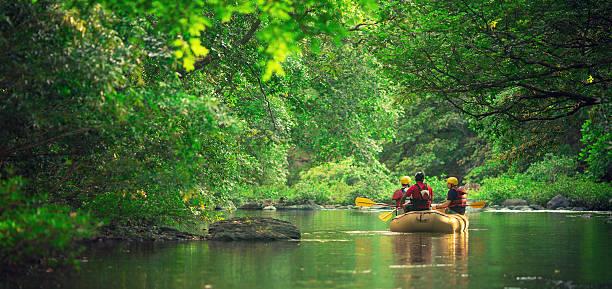
Volunteering in Costa Rica can be an incredibly rewarding and transformative experience. By preparing thoroughly, being respectful, adaptable, and open-minded, you can make a meaningful contribution to the local community while also gaining valuable insights and memories that can last a lifetime.
Pre-Trip Preparation
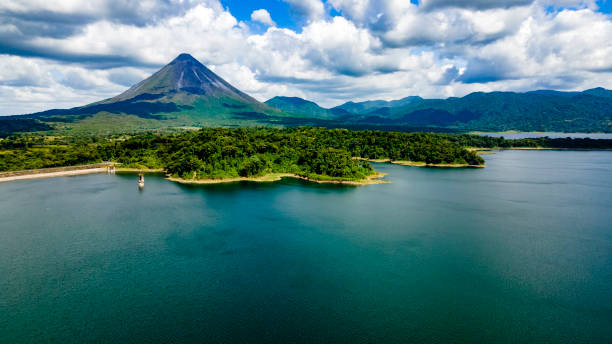
Before embarking on a volunteering trip to Costa Rica, it's crucial to explore various volunteer programs that cater to different areas such as conservation, education, community development, and more. These programs offer diverse opportunities to contribute to the local communities, wildlife, or environment. Here's a breakdown of steps to follow:
Research Volunteer Programs:
- Determine Your Interests: Assess your skills, interests, and the causes you're passionate about. Are you inclined towards environmental conservation, teaching, healthcare, or community development?
- Online Platforms: Utilise reputable online platforms that aggregate volunteering opportunities in Costa Rica. Websites like Volunteer World, Go Overseas, or Idealist offer a wide range of programs with detailed descriptions.
- Direct Program Websites: Visit the official websites of volunteer programs operating in Costa Rica. These sites often provide in-depth information about their missions, projects, and the kind of impact volunteers can make.
- Read Reviews and Testimonials: Look for reviews and testimonials from past volunteers. Assess their experiences, the credibility of the program, the support provided, and the actual impact made.
- Verify Program Credentials: Check if the program is registered with relevant authorities or associations. Ensure they follow ethical practices and have partnerships with local organisations or communities.
Ensure Credibility:
Once you've shortlisted potential programs, it's imperative to ensure their credibility and ethical standing. Here's how:
- Contact Previous Volunteers: Reach out to past volunteers if possible. Ask about their firsthand experiences, the support provided by the organisation, and the actual impact of their work.
- Check References: Request the program to provide references, including partner organisations or local authorities, and validate their credibility.
- Evaluate Transparency: An ethical program will be transparent about fees, project details, accommodations, and the percentage of fees allocated to the actual cause.
- Research Organisational Values: Understand the organisation's values, their approach to sustainable development, and how they integrate volunteers into their projects.
- Review Policies and Agreements: Carefully read through contracts, terms, and conditions provided by the program to ensure fairness and clarity.
Understand Cultural Nuances:
Welcome, wanderers, to the enchanting realm of Costa Rica, where verdant rainforests whisper ancient tales, and vibrant traditions dance through the streets. Join us on an immersive journey as we unravel the rich tapestry of this Central American gem, delving deep into its cultural nuances that paint a vivid portrait of its soul.
- Pura Vida: Embrace the Essence of Life
At the heart of Costa Rican culture lies the revered mantra of "Pura Vida" – an expression that encapsulates the essence of life itself. It's more than a saying; it's a way of being. From the bustling cityscapes of San José to the serene shores of its coastlines, this philosophy echoes through the smiles of locals and the rhythm of everyday life.
- Festivals and Traditions: A Mosaic of Celebration
Prepare to be swept away by a whirlwind of festivities that punctuate the Costa Rican calendar. Dive into the fervor of the Día de los Diablitos, where the indigenous Boruca community showcases their ancestral dances, adorned in intricate masks that echo stories of resistance and triumph. Experience the lively beat of marimbas and folkloric dances during the lively Tope Nacional in San José, celebrating Costa Rica's equestrian culture.
- Gastronomic Delights: A Fusion of Flavors
Savor the symphony of flavors that define Costa Rican cuisine, a tantalizing fusion of indigenous, Spanish, and Afro-Caribbean influences. Indulge in the iconic "gallo pinto," a savory concoction of rice and beans, or relish the freshness of "ceviche" bursting with zesty citrus notes. Don't miss out on the chance to sample the delectable "casado," a hearty dish marrying rice, beans, plantains, and a choice of succulent meats.
- Indigenous Heritage: Guardians of Ancient Wisdom
Venture into the lush embrace of Costa Rica's forests to encounter the indigenous tribes that safeguard their ancestral wisdom. Engage with the BriBri or Cabécar communities in their villages, where ancient traditions persist, weaving intricate baskets or crafting traditional medicines passed down through generations.
- Artistry and Crafts: Expression in Every Stitch
Explore the artisanal wonders woven into the fabric of Costa Rican culture. Marvel at the vibrant colors adorning "carretas," intricately painted oxcarts that once transported coffee beans. Lose yourself in bustling markets where skilled artisans display their handcrafted pottery, textiles, and intricate wooden carvings, each piece a testament to the country's artistic soul.
- Etiquette and Customs: Embrace Warmth and Hospitality
Delve into the warmth of Costa Rican hospitality, where "ticos" welcome visitors with open arms. Embrace local customs, such as addressing people respectfully using "Señor" or "Señora" and embracing the prevalent concept of personal space and time.
Costa Rica, a land where nature thrives, and culture flourishes, invites you to immerse yourself in its colorful traditions and profound way of life. Embrace every moment, cherish every interaction, and let the essence of "Pura Vida" guide you through this mesmerizing cultural odyssey. ¡Bienvenidos a Costa Rica!
Packing Essentials:
Packing appropriately ensures you're well-prepared for the volunteering experience in Costa Rica:
- Climate-Appropriate Clothing: Pack lightweight, breathable clothing suitable for Costa Rica's tropical climate. Include sturdy hiking gear if your program involves outdoor activities.
- Protection Against Elements: Carry insect repellent, sunscreen, hats, sunglasses, and rain gear to protect against insects, sunburn, and sudden weather changes.
- Reusable Water Bottle: Stay hydrated by carrying a refillable water bottle. Access to clean water is crucial, especially in remote volunteering locations.
Visa, Vaccinations, and Health Preparation:
Ensure your legal and health aspects are in order before travelling to Costa Rica:
- Visa Requirements: Check the visa requirements based on your nationality and the duration of your stay. Apply for the appropriate visa well in advance if needed.
- Vaccinations: Consult your doctor or a travel health clinic to get vaccinations recommended for Costa Rica. Common vaccines include hepatitis A and B, typhoid, and routine immunizations.
- Travel Insurance: Purchase comprehensive travel insurance covering medical emergencies, trip cancellations, and repatriation. Confirm coverage for volunteering activities.
- Health Precautions: Prioritise your health by eating well, exercising, and getting sufficient rest before the trip. Consider carrying a basic medical kit with essential medications.
By diligently researching and preparing for your volunteering trip to Costa Rica, you'll not only ensure a smoother experience but also maximise your contribution towards the local community or conservation efforts.
Arrival and Orientation
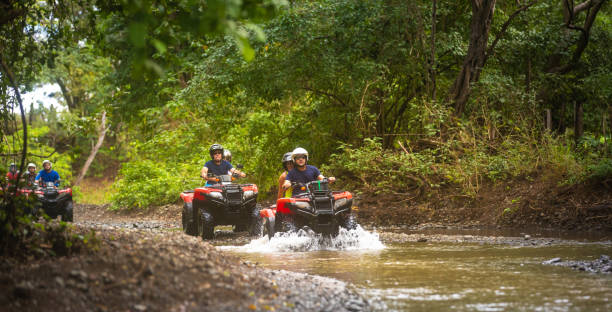
Preparing for your arrival and initial days in Costa Rica involves several essential steps to ensure a smooth transition into your volunteering experience. Welcome to the land of pura vida! As you prepare to embark on your Costa Rican adventure, let’s dive into the essential steps for a seamless arrival and orientation. From the moment you set foot on this vibrant soil, you'll be swept up in a whirlwind of natural beauty, cultural richness, and the infectious spirit of pura vida – the pure life. Here’s a detailed breakdown:
Before You Arrive
- Pre-Flight Excitement: Imagine the thrill of packing your bags, feeling the buzz of anticipation as your departure date approaches. Your heart races with excitement, ready to embrace the unknown and immerse yourself in the rich culture and stunning landscapes of Costa Rica.
- Essential Preparations: Before takeoff, make a checklist of essentials. Passport? Check. Travel insurance? Check. Don’t forget to pack your adventurous spirit! Also, brush up on some basic Spanish phrases; a little effort goes a long way in connecting with locals.
- Language Love : While many Costa Ricans speak English, having a few Spanish phrases up your sleeve can work wonders. ¡Hola! ¿Cómo estás? will be your best friends, but don't worry if you're not fluent – a smile goes a long way here.
Touchdown in Costa Rica
- Touchdown in Paradise: As your plane descends into Costa Rica, be prepared for an awe-inspiring view from above. Lush rainforests, glistening coastlines, and majestic volcanoes greet you, promising unforgettable experiences ahead.
- Welcoming Committee: Upon arrival, expect warm smiles and a welcoming atmosphere. You'll likely be greeted by your program coordinators, ready to guide you through the initial steps and help you acclimate to your new surroundings.
- Orientation Adventure: After settling in, get ready for an orientation adventure! You might explore nearby markets bustling with colorful fruits, spices, and artisanal crafts. Learn about the local customs, currency, and transportation, all while soaking in the vibrant Costa Rican energy.
- Embracing Pura Vida: The mantra of Costa Rica, 'pura vida,' encapsulates a lifestyle of pure life and positivity. Embrace it wholeheartedly – slow down, savor the simple moments, and relish the natural beauty surrounding you.
Embrace the Unknown!
- Your Volunteering Journey Begins: As you delve into your volunteering experience, brace yourself for transformative encounters. Whether it's conservation efforts in the lush rainforests, contributing to community development projects, or assisting in wildlife rehabilitation, every moment will be a stepping stone in your journey.
- Challenges and Joys: Expect the unexpected! Challenges may arise – perhaps a language barrier or adjusting to a different pace of life. But these hurdles will be eclipsed by the joy of making a difference, forming meaningful connections, and discovering the resilience within yourself.
- Unforgettable Memories: From vibrant festivals to breathtaking sunsets painting the sky in hues of orange and pink, each day in Costa Rica is a canvas for unforgettable memories waiting to be painted.
As you prepare for this exhilarating journey, remember, Costa Rica is more than a destination; it’s a way of life. Get ready to embrace the laid-back vibes, be embraced by the warm Tico hospitality, and let the magic of this captivating country steal your heart. Pura vida awaits – get ready to live it to the fullest!
Accommodation and Living Arrangements
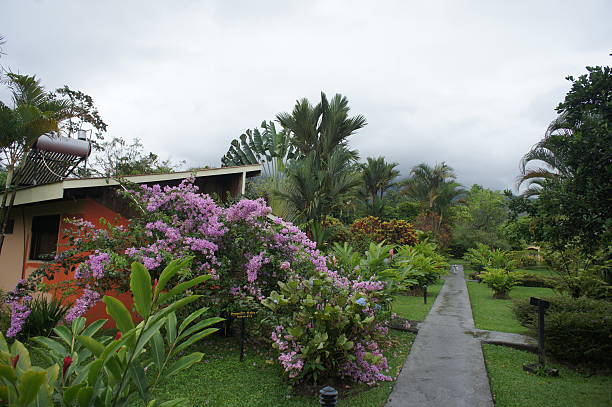
Living conditions during a volunteering trip to Costa Rica might differ significantly from your usual environment. Being prepared and adaptable is essential for a meaningful and respectful experience. Here's a detailed overview of considerations:
Living Conditions:
Open-mindedness: Be mentally prepared for diverse living conditions. Accommodations could vary from simple housing to staying with local families or in communal settings. Embrace these differences with an open mind.
Respect for Host Families:
If staying with a host family, respect their lifestyle, rules, and cultural norms. Show gratitude for their hospitality.
Engage positively with your host family. Building a rapport fosters mutual understanding and a richer cultural exchange.
Utilities Management:
Understand the usage of utilities like water and electricity in your accommodation. Be mindful of conservation efforts and use resources responsibly.
Ask your hosts about their practices regarding utilities and follow their lead to minimise environmental impact.
Adaptability and Flexibility:
Embrace adaptability and flexibility in your living arrangements. Be prepared to adjust to different sleeping arrangements, meals, and daily routines.
Flexibility is key when unexpected changes occur. Approach these changes positively as part of the immersive experience.
Cultural Immersion:
Immerse yourself in the local culture by actively participating in community activities and events. This could include traditional festivals, ceremonies, or local gatherings.
Try traditional foods and beverages. Sharing meals with locals is an excellent way to connect and understand their way of life.
Tips for a Respectful and Engaged Experience:
Communication: Maintain open communication with your host family or accommodation providers. Express any concerns politely and be open to their suggestions.
Learn and Participate: Take the initiative to learn about local customs and traditions. Participate in cultural activities or rituals if invited, showing respect for their practices.
Gratitude: Express gratitude regularly. Acknowledge the efforts made by your host family or community to welcome and accommodate you.
Contribute: Offer to help with household chores or community initiatives. This not only shows appreciation but also fosters a sense of camaraderie.
Challenges and Opportunities:
Challenges: Embrace challenges as learning opportunities. Cultural differences or adjustments might present challenges, but they contribute to personal growth and understanding.
Reflect and Adapt: Reflect on your experiences regularly. Adapt your behaviour and actions based on cultural nuances you observe.
Being mindful, respectful, and adaptable in your living arrangements during a volunteering trip to Costa Rica is crucial for fostering meaningful connections with the local community. Embracing cultural immersion, respecting host families, conserving resources, and maintaining an open-minded attitude will not only enrich your experience but also contribute positively to the community you're serving.
Volunteering Activities
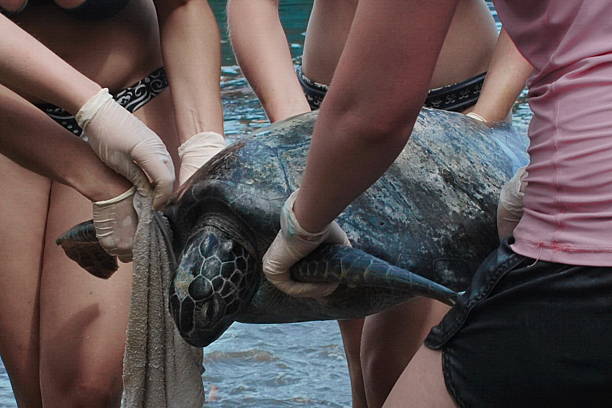
Absolutely, ensuring a productive and respectful volunteering experience in Costa Rica involves adhering to guidelines, engaging effectively, and respecting local authority while actively contributing to the community. Here's an in-depth look at these key aspects:
Following Guidelines:
Adherence to Program Guidelines:
Follow the guidelines provided by the volunteering program diligently. These guidelines ensure safety, effectiveness, and respect within the volunteering environment.
Communication and Engagement:
Seek Clarification:
If unsure about tasks or responsibilities, don't hesitate to ask questions. Clear communication ensures you understand your role and contributes effectively.
Active Engagement:
Stay engaged and enthusiastic about your volunteer work. Show commitment and passion, as it reflects your dedication to the cause.
Respect for Local Authorities:
Respect and follow instructions from local coordinators and authorities. They possess valuable knowledge and guidance crucial for a successful volunteering experience.
Pro-activity and Collaboration:
Being Proactive:
Identify ways to contribute beyond assigned tasks if you have additional skills or see areas that need assistance. Your proactive approach can significantly impact the community.
Teamwork and Cooperation:
Foster a spirit of teamwork and cooperation among fellow volunteers. Collaboration enhances the efficiency and impact of collective efforts.
Sharing Experiences and Skills:
Share your experiences, knowledge, and skills with the local community. This cultural exchange enriches both sides and fosters mutual learning.
Responsible Documentation:
Respecting Privacy:
When documenting your experience through photos or videos, prioritise privacy. Respect individuals' privacy and seek permission before taking their photos.
Permission and Sensitivity:
Obtain consent when capturing images or videos that involve community members or sensitive locations. Respect cultural sensitivities regarding photography.
Reflecting and Learning:
Reflective Practice:
Regularly reflect on your experiences, challenges faced, and lessons learned. This introspection aids personal growth and ensures continuous improvement.
Cultural Exchange:
Engage in a meaningful cultural exchange. Be receptive to learning from the community, while also sharing your own background and experiences.
By following program guidelines, actively engaging with tasks, respecting local authorities, fostering teamwork, sharing experiences thoughtfully, and responsibly documenting your journey, you contribute positively to the volunteering experience. Your commitment, respect, and proactive involvement enhance the impact of your efforts and create a more meaningful connection with the community in Costa Rica.
Health and Safety
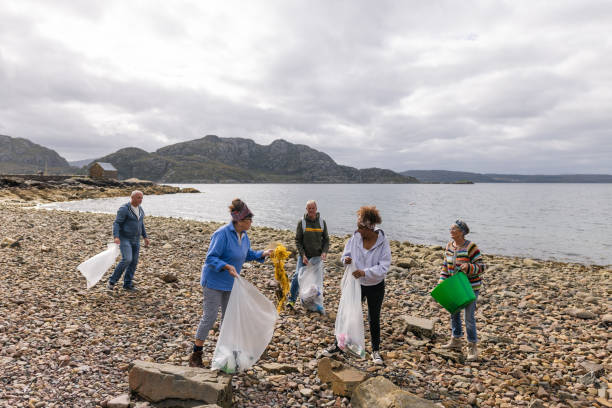
Ensuring your health and safety during a volunteering trip to Costa Rica, especially in its tropical climate, is vital. Here are detailed tips to help you stay healthy and safe:
Hydration in Tropical Climate:
Stay Hydrated:
Drink plenty of water throughout the day, especially in Costa Rica's warm and humid climate. Carry a refillable water bottle and drink water even if you don't feel thirsty to prevent dehydration.
Protection against Insects and Sun:
Insect Protection:
Use effective insect repellents containing DEET or other recommended ingredients to prevent mosquito bites, reducing the risk of mosquito-borne diseases like dengue or Zika.
Wear long-sleeved shirts, long pants, and clothing treated with permethrin to minimise exposure to insects, especially during dawn and dusk when mosquitoes are most active.
Sun Safety:
Apply sunscreen with a high SPF regularly, especially if engaging in outdoor activities. Reapply sunscreen every few hours, especially after swimming or sweating.
Wear wide-brimmed hats, sunglasses, and lightweight clothing that covers exposed skin to prevent sunburn and heat-related illnesses.
Healthcare and Safety Measures:
Healthcare Facilities:
Familiarise yourself with the location and contact information of nearby healthcare facilities, clinics, hospitals, or pharmacies. Have these details readily available in case of emergencies.
Food Safety:
Be cautious with street food. Opt for well-cooked, hot meals from reputable vendors to reduce the risk of foodborne illnesses. Avoid raw or undercooked food, and peel fruits and vegetables before consuming.
Drink bottled or purified water to prevent water-borne diseases. Avoid tap water unless it has been properly treated or boiled.
Emergency Kit:
Carry a small first-aid kit with essential items like bandages, antiseptic wipes, pain relievers, anti-diarrheal medication, allergy medication (if applicable), and any personal prescription medications.
Additional Health Tips:
Hygiene Practices: Maintain good personal hygiene by washing hands frequently, especially before meals and after using the restroom.
Immunizations: Ensure you've received recommended vaccinations for Costa Rica. Keep records of your immunizations handy.
Seeking Medical Help:
Recognize Symptoms: Be aware of common tropical diseases' symptoms and seek medical attention promptly if you experience fever, severe headaches, persistent vomiting or diarrhoea, or any unusual symptoms.
Insurance Coverage: Confirm your travel insurance covers medical emergencies and understand the procedures for accessing medical care in Costa Rica.
By prioritising hydration, protecting against insects and sun exposure, being mindful of healthcare facilities, practising food and water safety measures, and having a basic emergency kit, you significantly reduce health risks during your volunteering trip in Costa Rica. Staying vigilant and prepared ensures a safer and healthier experience, allowing you to focus on contributing meaningfully to your volunteering efforts.
Environmental Conservation
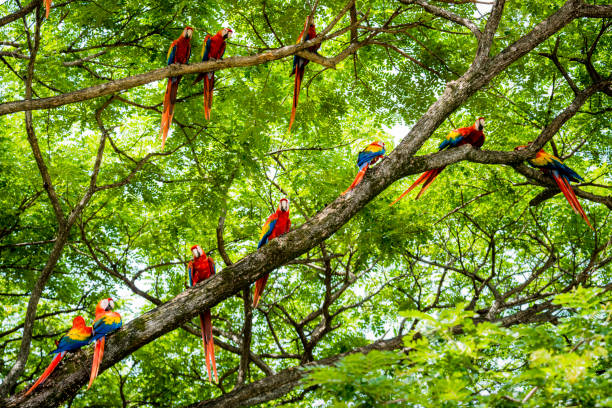
Responsible and sustainable practices during your volunteering trip to Costa Rica are crucial for preserving its natural beauty and ecosystems. Here's a detailed guide to ensure responsible travel and conservation efforts:
Responsible Travel Practices:
Respect for the Environment:
Avoid littering and dispose of waste properly. Carry a small bag for trash and dispose of it in designated bins.
Opt for reusable items whenever possible to minimise waste generation.
Wildlife Interaction:
Admire wildlife from a distance and refrain from feeding or touching animals. Respecting their natural behaviour and habitat is crucial for their well-being.
Do not disturb or chase animals for photographs. Keep noise levels to a minimum to prevent startling or stressing wildlife.
Minimising Environmental Impact:
Reducing Plastic Use:
Carry reusable bags, bottles, and containers to minimise single-use plastic consumption. Refill your water bottle from reliable sources to reduce plastic waste.
Dispose of plastic responsibly and consider participating in beach or community clean-up initiatives if available.
Respect for Natural Habitats:
Follow designated trails and stay on marked paths in natural reserves, national parks, or protected areas. Straying off trails can damage delicate ecosystems and disturb wildlife habitats.
Adhere to guidelines provided by park authorities or tour guides. These guidelines are designed to protect the environment and wildlife.
Additional Conservation Tips:
Educate Others: Share conservation practices and encourage fellow volunteers or travellers to adopt responsible behaviours.
Support Local Initiatives: Consider supporting local conservation projects or community-led environmental efforts during your stay.
By adopting responsible travel practices such as avoiding littering, respecting wildlife, reducing plastic use, and following guidelines in natural reserves, you contribute to the preservation of Costa Rica's rich biodiversity and natural habitats. Your efforts, along with those of the local community, contribute significantly to the long-term sustainability of the region, ensuring its beauty and resources for future generations to enjoy.
Communication and Interaction

Navigating cultural differences and language barriers respectfully is key to fostering meaningful connections during your volunteering trip to Costa Rica. Here's a comprehensive guide to facilitate effective communication and cultural understanding:
Language and Communication:
Learn Basic Spanish:
Learn essential Spanish phrases to facilitate communication with locals. Greetings, common phrases, and basic questions can go a long way in building rapport.
Cultural Sensitivity:
Respect cultural norms, traditions, and customs. Take time to learn about local practices and avoid behaviours that might be deemed offensive or disrespectful.
Interactions and Engagement:
Friendly Attitude:
Approach interactions with an open, friendly, and approachable demeanour. A warm attitude can break down barriers and encourage engagement.
Active Listening:
Listen attentively to locals' stories, experiences, and perspectives. Show genuine interest in their lives and cultural heritage. This demonstrates respect and fosters mutual understanding.
Community Engagement:
Volunteer Engagement:
Engage actively with the community to understand their needs and challenges. Offer support aligned with their priorities and seek opportunities to contribute meaningfully.
Participate in Local Activities:
Participate in community activities, celebrations, or events when invited. Immersing yourself in local traditions showcases respect and appreciation for the community's way of life.
Respectful Engagement Practices:
Observation and Adaptation: Observe how locals interact and behave in various situations. Adapt your behaviour accordingly to align with their norms and practices.
Non-verbal Communication: Be mindful of non-verbal cues and body language. Sometimes, gestures and expressions can bridge language gaps effectively.
Building Meaningful Connections:
Ask Permission: Seek permission before taking photos or participating in certain activities. Respect personal space and cultural boundaries.
Cultural Exchange: Share aspects of your own culture when appropriate. This mutual exchange fosters a deeper connection and understanding.
By learning basic Spanish, practising cultural sensitivity, maintaining a friendly attitude, actively listening to locals, and engaging meaningfully with the community, you create a bridge between cultures. Respectful interactions and genuine interest in their culture and experiences enrich both your volunteering journey and the connections you establish in Costa Rica.
Exploration and Leisure
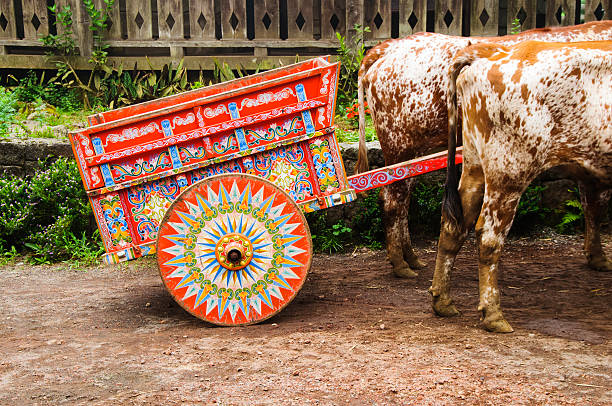
Absolutely, exploring Costa Rica beyond your volunteering duties can enhance your experience and offer a deeper understanding of the country's culture, nature, and traditions. Here's a detailed guide on ways to explore and enjoy your time:
Exploring Nearby Attractions:
Local Exploration:
Take time to explore nearby attractions, markets, or historical sites during your free time. Engaging with local businesses or artisans can provide unique insights into the community.
Immersing in the Environment:
Immerse yourself in the local environment by taking leisurely walks, visiting parks, or strolling through neighbourhoods. This allows for a more authentic understanding of daily life in Costa Rica.
Weekend Excursions:
Planning Trips:
Plan weekend excursions to explore different regions of Costa Rica. Visit popular destinations like Arenal Volcano, Monteverde Cloud Forest, or Manuel Antonio National Park for diverse experiences.
Cultural Immersion:
Use weekends to visit culturally significant sites such as indigenous reserves, museums, or heritage sites. This provides a deeper understanding of Costa Rica's rich history and traditions.
Outdoor Adventures:
Hiking and Nature Trails:
Explore hiking trails in national parks or reserves. Enjoy the diverse flora and fauna while trekking through lush forests or up scenic viewpoints.
Adventure Activities:
Engage in thrilling outdoor activities like zip-lining, canopy tours, or whitewater rafting, which Costa Rica is famous for. These experiences offer a unique perspective on the country's natural beauty.
Cultural Events and Festivals:
Participation in Festivals:
Keep an eye out for local festivals or cultural events happening during your stay. Participating in traditional celebrations can be an enriching cultural experience.
Local Performances or Workshops:
Attend local performances, music events, or workshops that showcase Costa Rican traditions, music, dance, or crafts. This immerses you in the vibrant local culture.
Preparation and Considerations:
Planning Ahead: Research and plan your excursions or activities in advance to make the most of your free time.
Respecting Local Customs: Ensure your attire and behaviour align with the cultural norms and etiquettes, especially during cultural events or religious festivals.
Exploring nearby attractions, planning weekend trips, indulging in outdoor adventures, and participating in cultural events during your volunteering stint in Costa Rica offers a well-rounded experience. It not only enhances your understanding of the country but also allows for personal growth, creating lasting memories beyond your volunteer work.
Reflecting and Learning
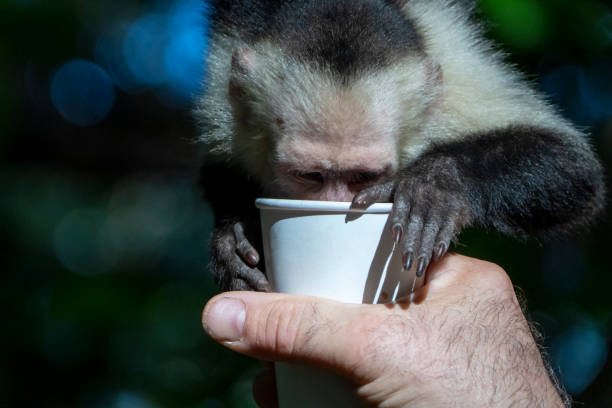
Certainly, incorporating reflective practices and cultural exchange during your volunteering experience in Costa Rica can significantly enrich your journey. Here's a detailed guide on how to do so effectively:
Daily Reflection:
Reflection Routine:
Set aside time each day to reflect on your experiences, interactions, and the day's events. Consider what you've learned, challenges faced, and moments of personal growth.
Self-Analysis:
Assess your reactions, emotions, and responses to different situations. Analyse how they might align or contrast with the local culture, allowing for self-awareness and adaptation.
Journaling:
Keeping a Journal:
Maintain a journal to document your thoughts, observations, emotions, and experiences throughout your volunteering journey. Include details about cultural discoveries, challenges, and personal insights.
Emotional Outlet:
Use your journal as a therapeutic tool to process emotions, especially during challenging or transformative moments. It serves as a personal space for introspection and growth.
Feedback and Evaluation:
Constructive Feedback:
Provide constructive feedback to the volunteering program or organisation. Share insights, suggestions, and areas for improvement based on your experiences. This helps enhance future volunteering opportunities.
Evaluation for Growth:
Participate in program evaluations if offered. Honest feedback contributes to program development and ensures a more enriching experience for future volunteers.
Cultural Exchange:
Learning from Locals:
Actively engage with the local community to understand their customs, traditions, and way of life. Ask questions, listen attentively, and show genuine interest in their culture.
Sharing Your Culture:
Share aspects of your own culture, traditions, and experiences with the locals. This mutual exchange fosters a deeper understanding and appreciation for different backgrounds.
Additional Tips:
Mindful Observation: Observe local customs, rituals, and behaviours. Reflect on how they align with or differ from your own cultural norms.
Respectful Participation: When engaging in cultural exchanges, ensure your participation is respectful and appreciative of local traditions.
Incorporating daily reflection, journaling, providing feedback, and engaging in cultural exchange practices during your volunteering journey in Costa Rica fosters personal growth, cultural understanding, and meaningful connections. These practices not only enhance your experience but also contribute positively to the community you're serving, creating a more enriching and impactful volunteering endeavour.
Departure and Post-Trip
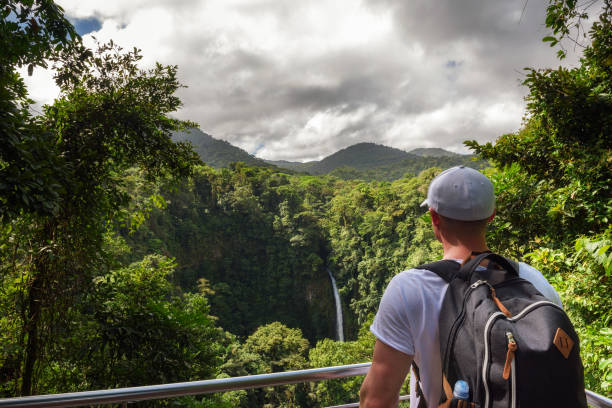
Preparing to depart from Costa Rica after your volunteering experience involves thoughtful organisation and expressing gratitude for the connections made. Here's a detailed guide for a smooth departure and meaningful closure:
Organising Departure:
Belongings Check:
Double-check your belongings to ensure you haven't left anything behind. Collect all personal items and documents to avoid last-minute stress.
Accommodation Check:
Review your accommodation for any personal belongings or items that need to be returned. Ensure everything is in order and tidy before departure.
Expressing Gratitude:
Thanking Hosts and Coordinators:
Express sincere gratitude to host families, coordinators, and anyone who supported you during your stay. A heartfelt thank-you note or gesture of appreciation goes a long way.
Acknowledging Fellow Volunteers:
Thank fellow volunteers for their camaraderie, shared experiences, and support. Consider a group gathering or small token of appreciation to bid farewell.
Staying Connected:
Exchanging Contact Information:
Exchange contact details with the people you've met, including fellow volunteers, local community members, or coordinators. Staying in touch fosters continued connections and cultural exchange.
Social Media and Networking:
Connect on social media platforms to stay updated and maintain relationships. This helps in sustaining the friendships and networks built during your volunteering stint.
Post-Trip Reflection:
Reflecting on Impact:
Take time to reflect on the impact of your volunteering experience. Consider how it influenced your perspective, personal growth, and future aspirations.
Personal Growth Evaluation:
Evaluate how the experience has shaped your values, understanding of different cultures, and your role in global issues. This introspection aids in personal development.
Sharing Your Experience:
Utilising Social Media or Blogs:
Share your volunteering journey through social media posts, blogs, or articles. Highlight the cultural immersion, projects undertaken, and the impact made to inspire others.
Presentations or Talks:
Consider giving presentations or talks in your community, school, or workplace about your volunteering experience. This raises awareness about volunteering and the significance of cultural exchange.
Preparing for departure from Costa Rica involves not just organising belongings but also expressing gratitude, staying connected, reflecting on personal growth, and sharing your impactful experience. These steps ensure a respectful farewell and allow you to carry forward the learnings and connections made during your volunteering journey in Costa Rica.
Additional Tips

Absolutely, approaching your volunteering experience in Costa Rica with patience, respect, initiative, humility, and a positive attitude can lead to a more enriching and rewarding journey. Here's a comprehensive guide:
Patience and Adaptability:
Embracing Differences:
Embrace cultural, social, and logistical differences with an open mind. Understand that things may not always go as planned, and adaptability is key to navigating such situations.
Respect for Local Traditions:
Participate respectfully in local traditions and customs. Embrace the opportunity to learn about and engage in cultural practices, showing reverence and interest.
Initiative and Humility:
Taking Initiative:
Don't hesitate to offer suggestions or ideas for improvements that align with the program's goals. Your input can contribute to the betterment of projects or community initiatives.
Staying Humble:
Approach every situation with humility. Recognize that you're there to assist and learn from the community. This attitude fosters respect and a more meaningful exchange.
Embracing Challenges:
Seeing Challenges as Opportunities:
View challenges as opportunities for personal growth and learning. Overcoming obstacles during your volunteering journey can lead to valuable insights and resilience.
Positive Mindset:
Maintain a positive attitude and resilience in the face of challenges. This mindset allows you to approach difficulties with optimism and determination.
Enjoying the Experience:
Embracing Uniqueness:
Embrace the uniqueness of your volunteering journey. Every moment, interaction, and experience contributes to a distinctive and valuable adventure.
Savouring Every Moment:
Take time to appreciate the moments, connections, and lessons learned during your volunteering stint. Savouring these experiences adds depth and meaning to your journey.
Additional Considerations:
Adapting to Uncertainty: Embrace uncertainty and unpredictability as part of the experience. Flexibility and adaptability are key attributes in navigating new environments.
Learning from Challenges: Reflect on challenges as opportunities for personal and professional development. They often provide valuable lessons and insights.
Approaching your volunteering experience in Costa Rica with patience, respect, initiative, humility, and a positive outlook enhances not only your contribution but also your personal growth and cultural understanding. Embrace the journey with an open heart and a willingness to learn, making the most of every moment along the way.
Embarking on a volunteering trip to Costa Rica is an incredible opportunity to make a meaningful difference while immersing yourself in a vibrant culture and stunning natural landscapes. These 101 tips aim to equip you with the necessary knowledge and mindset to maximise your experience and leave a positive impact on the communities and environment you engage with. Remember, it’s not just about what you can give but also about what you can learn and take away from this enriching journey. ¡Buena suerte y pura vida! (Good luck and pure life!)
Software designer, founder, and amateur astronaut.
I’m Spencer, a software designer and entrepreneur based in New York City. I’m the founder and CEO of Planetaria, where we develop technologies that empower regular people to explore space on their own terms.





